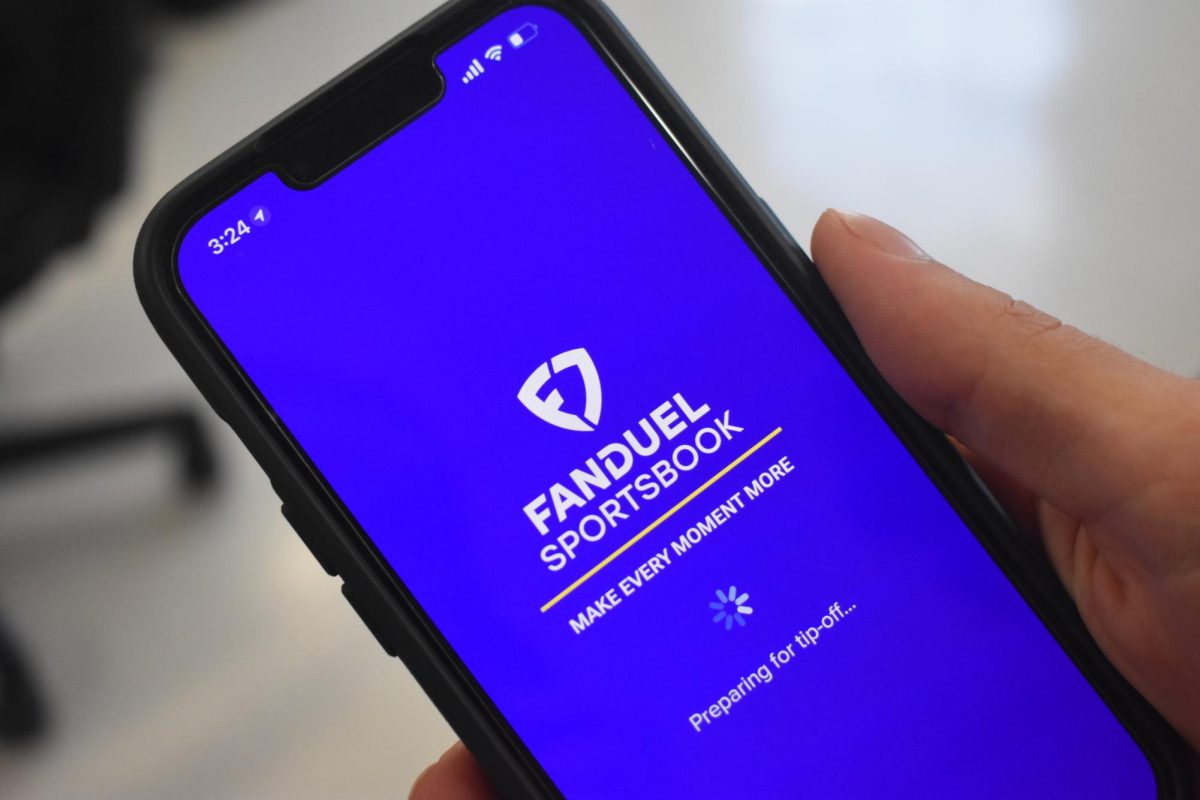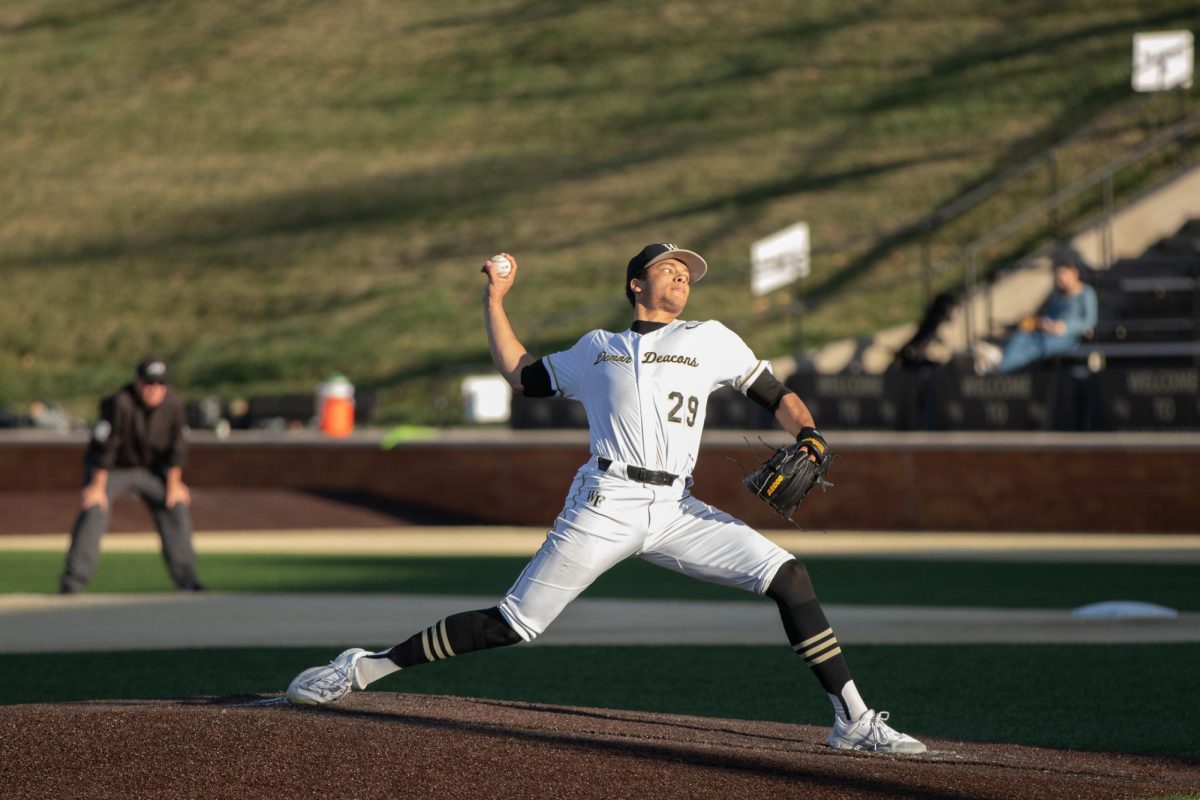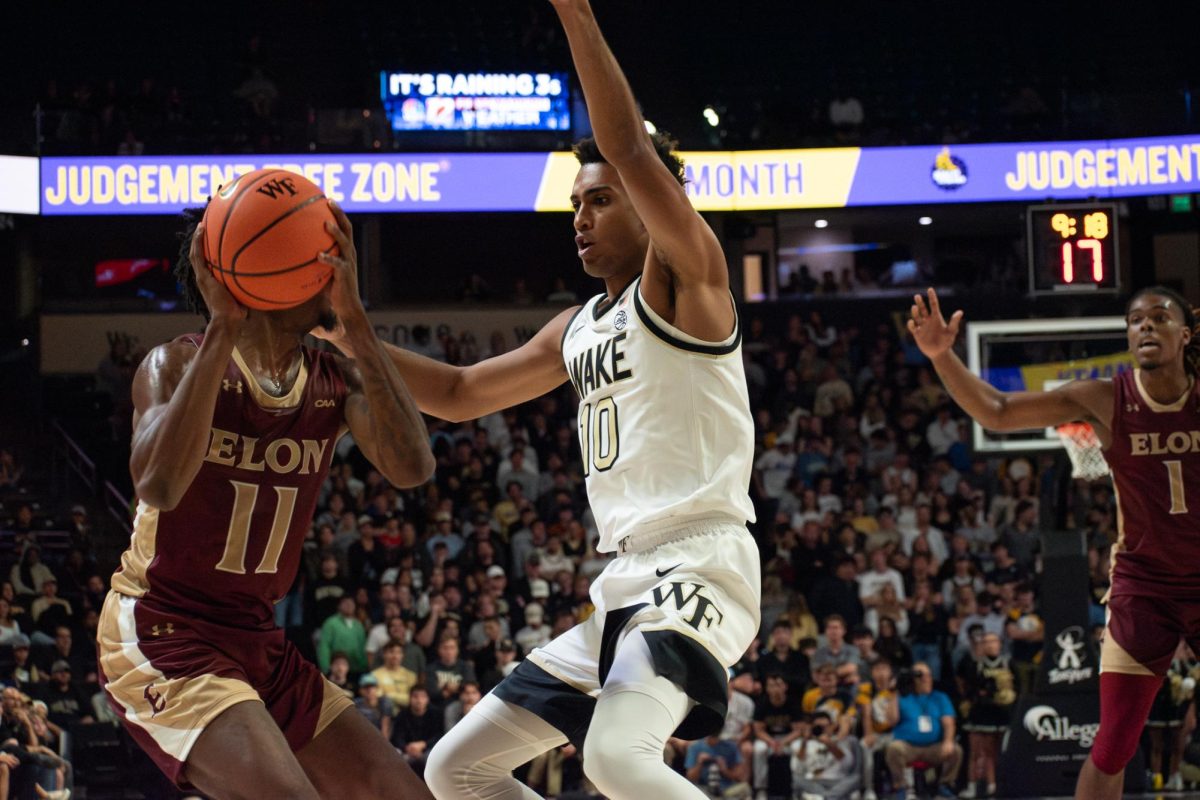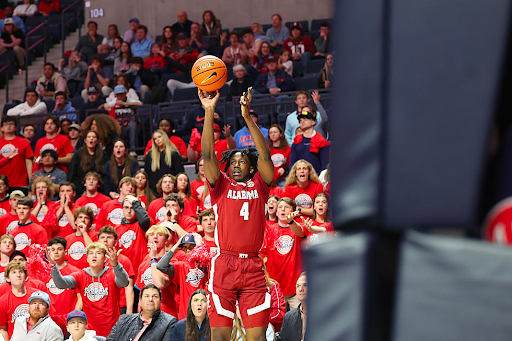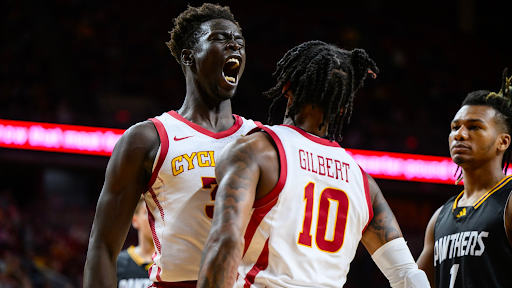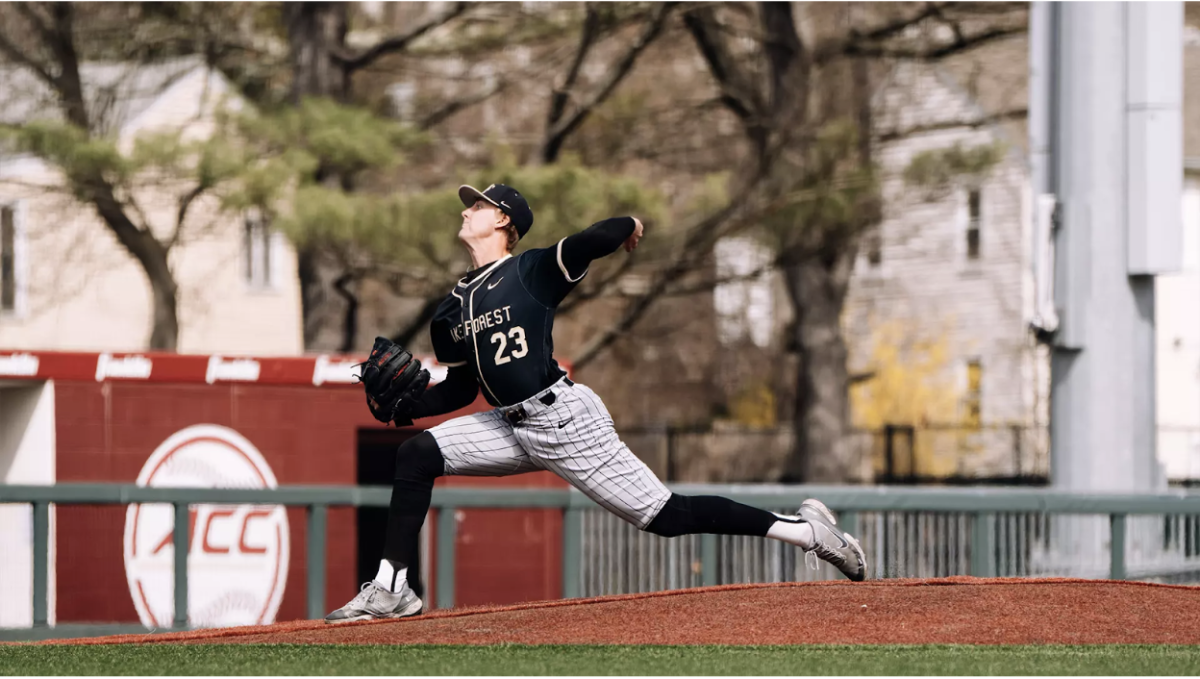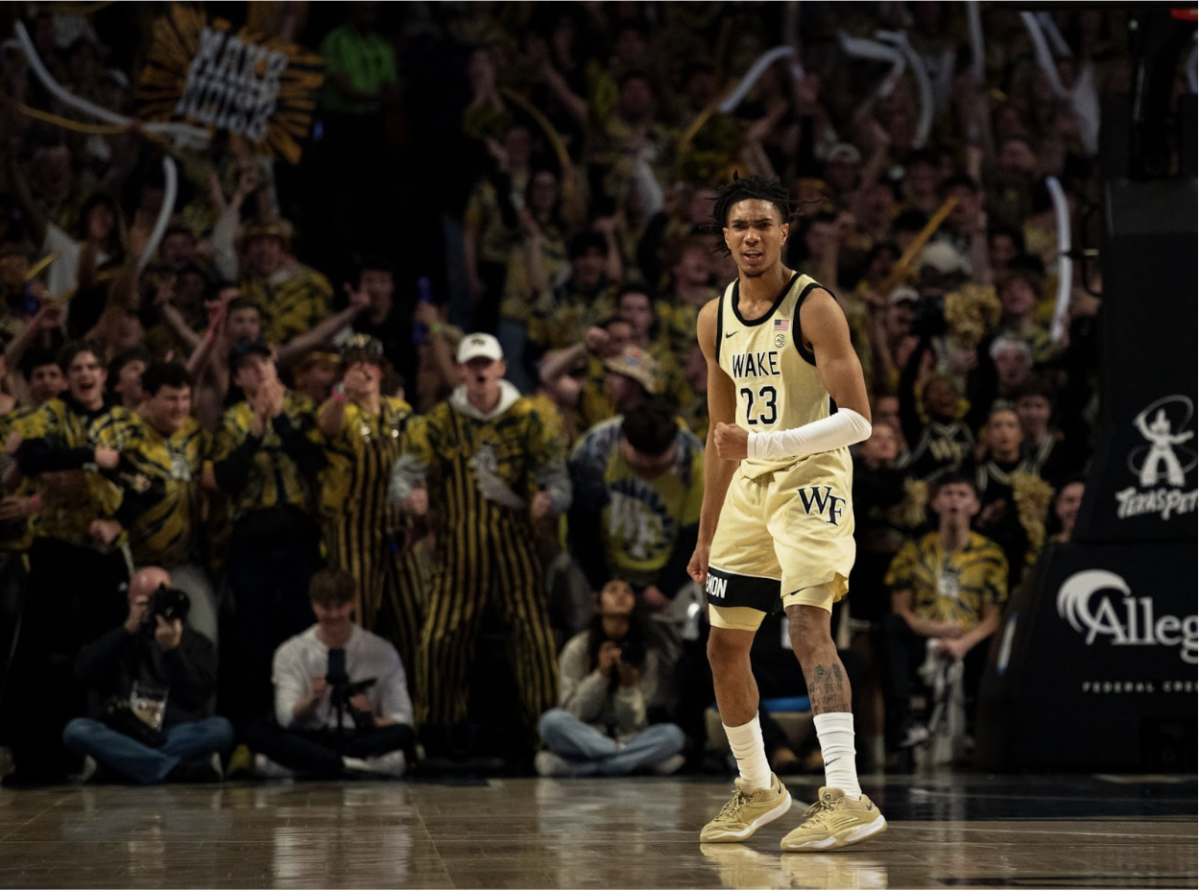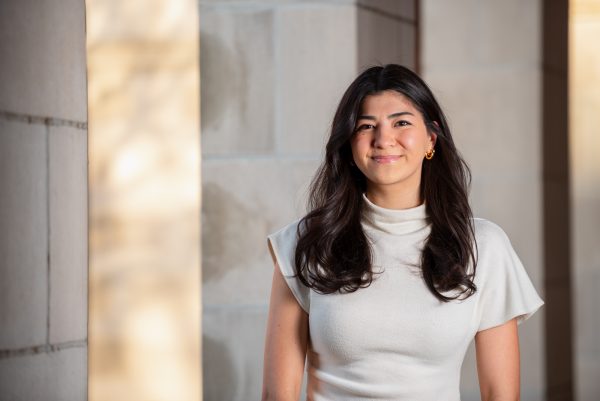Whenever a sporting event is happening anywhere in the world, it is safe to assume that somewhere, somehow, someone is betting on it — and this rings true at Wake Forest University.
“If we’re watching it, we’re betting on it,” said a senior sports bettor whom the Old Gold & Black granted anonymity due to the fact that sports betting outside of casinos is illegal in North Carolina.
In 2018, the U.S. Supreme Court struck the Professional and Amateur Sports Protection Act of 1992, a federal law that prevented the majority of states from legalizing sports betting. The effects of this decision have reverberated across the country as more than 30 states have now legalized sports betting in some form — including online gambling. In 2019, sports betting at two casinos, Harrah’s Cherokee Valley River Casino and Harrah’s Cherokee Casino Resort, was legalized in North Carolina, and due to a law passed earlier this year, online sports betting sites will be legalized by an unspecified date in 2024, the latest possible being June 15, according to WFDD.
In the five years since the Supreme Court’s decision, Americans have bet more than $220 billion on sports through legal gambling services. There is a palpable buzz of excitement that surrounds this newly legal form of entertainment, but there is also a more sinister side of gambling. The Old Gold & Black spoke to students who bet on sports, and who shared their experiences with sports gambling — the good and the bad.
Senior Braden Bock said that sports gambling at Wake Forest is widespread.
“All my friends bet,” said Bock. “Most people I run into bet in some way or form.”
Just because it isn’t legal in North Carolina doesn’t mean that students haven’t found ways to bet on sports outside of casinos. Bock said that underground gambling operations are widespread at Wake Forest, with illegal online sports books being relatively easy to access.
“A lot of times it’s a much bigger scale than just one person Venmo-ing out people,” Bock said. “Let’s say I wanted to open up a sportsbook — I’d pay the website to get access to all their information.”
Bock continued: “From there on out, that person is responsible for who they let onto their book and what minimum bets they’re going to accept. They’re essentially going to come up with all the rules. The lines are just going to be generated by a program that you’re essentially paying for, which is just that website.”
‘It kills you everyday:’ The dark side of sports betting
Dr. Erik Nesson, an associate professor in the epartment of Economics at Wake Forest, has studied the hot-hand fallacy, the tendency to believe that once someone has succeeded at some task, they are likely to continue to be successful at this task in the future.
“The question of the hot hand is about cognitive illusions,” Nesson said. “And humans have evolved to see patterns and things even sometimes when patterns don’t exist.”
He continued: “I think most people who gamble don’t develop a problem, but I also imagine for some people, it might lead to a gambling addiction and potential financial difficulties.”
The misconception of the hot hand is often applied to sports and gambling, but when people make risky bets based on this mistaken belief, their outcomes may be more devastating than they originally thought.
When bettors start gambling with higher sums of money, it can have disastrous consequences — especially when those bettors are college students. According to a 2023 National Collegiate Athletic Association (NCAA) survey, among 18 to 22-year-olds, 67% of students living on campus bet on sports — with 35% having used a student bookmaker, or “bookie.”
“There were times I ghosted my bookie three weeks in a row for 300 bucks,” the anonymous bettor said.
Bookie is a slang term for a bookmaker — someone who places bets, sets odds and pays out winnings on behalf of others.
“I won $700; I’ve cleared out my profit…I use it all again. At that point, you’re like, ‘I gotta stop,’” the anonymous bettor said.
This cycle is one that is familiar to many across the nation. The National Council on Problem Gambling approximates that 6% of college students in the United States have a serious gambling problem.
“When you gamble, be it sports betting [or] any sort of gambling, once you are getting into it, you know the only positive outcome is if [you] know how to get out…90% of people don’t have that,” the anonymous bettor said. “It kills you, it kills you every single day…I know people who will not eat proper meals for four days just to pay off their debt.”’
A fun way to watch sports
For students who know their limits, responsible sports betting can be an exciting avenue through which they can engage with sporting events that they otherwise may have ignored.
“We used to bet freshman year on Russian ping pong during COVID,” Bock said.
Sports betting has had a significant presence on campus for years. Groups of friends crowd around TVs in their dorm rooms and compare how their bets are faring. Seemingly obscure sports suddenly become relevant when $20 hinges on the outcome of the game.
“The main thing actually is betting on the same stuff with your friends and kind of trying to ride it out together,” senior Nick Zuga said. “I think it also…helps you still enjoy parts of sports when your favorite teams aren’t playing.”
Come 2024 — what then?
If sports betting was already widespread across campus before, legalization in North Carolina will magnify its influence. Bock said that when DraftKings, an online sports betting site, goes live in North Carolina, he expects that more Wake Forest students will bet on sports.
“I would expect the uptick of students betting on campus for sure — especially because DraftKings makes everything so easy and convenient,” Bock said.
According to the International Journal of Mental Health and Addiction, the speed at which someone can pull out their phone and place a bet can also make it much easier for bettors to become addicted. Online sportsbooks, such as DraftKings and FanDuel, have resources on their website dedicated to addressing the dangers of gambling in any form.
“I genuinely believe FanDuel has done a really good job of taking responsible gaming really seriously, as opposed to just sort of trying to sweep it under the bridge and turn a blind eye to it,” said Charlie Frankel, a Wake Forest alum who currently works for FanDuel.
Some of these resources include limits on how much bettors can spend on deposits and wagers, as well as how much time they can spend playing.
The support services are there, but whether college students can recognize problematic habits and are willing to seek out those tools is an additional uncertainty within this complex issue.
“It’s tough — there’s always gonna be people who misuse it and cause problems, and it really impacts their life in a negative way,” Bock said. “But I guess the question is — is that enough to justify not letting everyone else do it? And that’s not really a question I have an answer to.”
If you are struggling with a gambling addiction, you can call the national problem gambling helpline at 1-800-GAMBLER (426-2537) or the North Carolina Council on Problem Gambling helpline at 1-800-522-4700.


